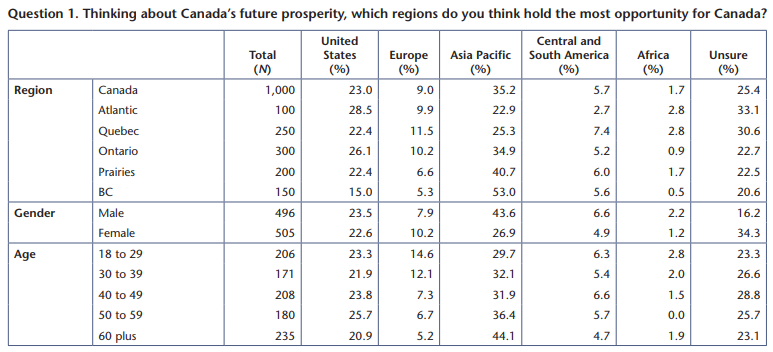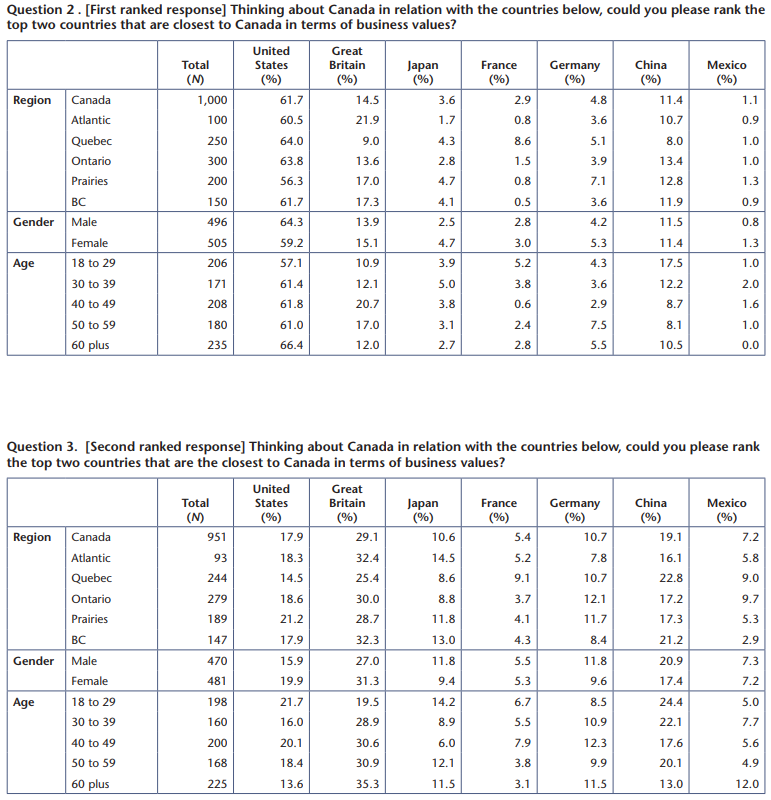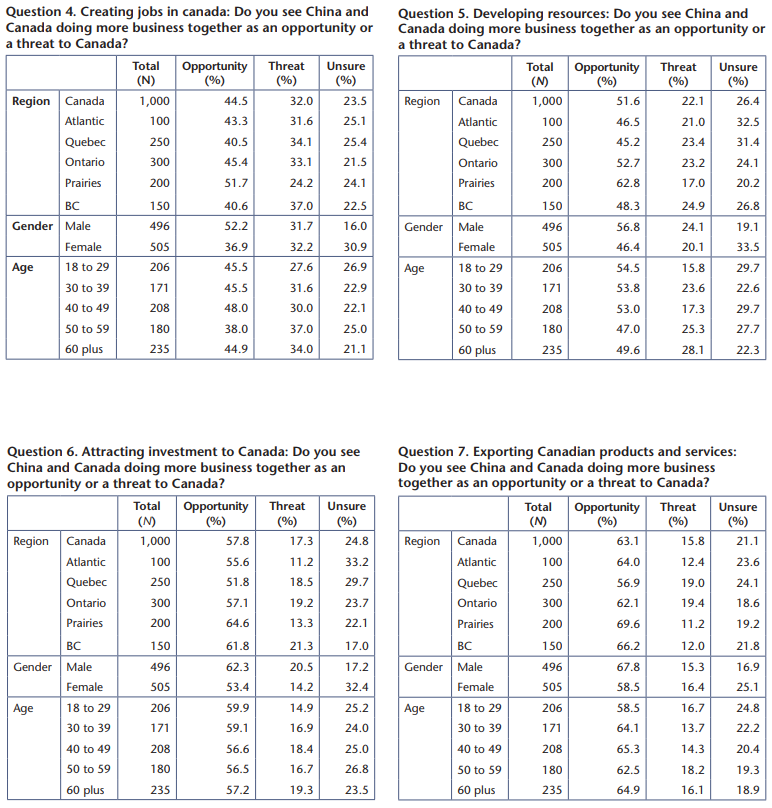
More than one in three Canadians think the Asia-Pacific region “holds the most opportunity for Canada,” as opposed to just under one Canadian in four who believe the best opportunities lie in the United States.
In other words, Canadians understand that while the US is our most important trading partner, the Asia Pacific region is our most important opportunity.
This is the principal finding of the latest poll by Nanos Research for Policy Options. The survey was conducted online on June 11 and 12 among 1,000 Canadians 18 years of age and up and is representative of the Canadian population.
In our survey, fully 35.2 percent of Canadians said the Asia Pacific offered the best opportunity for Canada, while 23 percent chose the United States (question 1). Only 9 percent said Europe, while 5.7 percent selected Central and South America, and 1.7 percent chose Africa (25.4 percent of respondents were unsure).
Not surprisingly, the regional variations from the national numbers were highest in British Columbia, Canada’s Pacific Gateway province. In BC, fully 53 percent said Asia-Pacific represented Canada’s best opportunity, while only 15 percent said the US.
In the Prairies support for the Asia Pacific opportunity also trended above the national average, at 40.7 percent, with 22.4 percent saying the US holds the most opportunity for Canada.
In Ontario, the Asia-Pacific opportunity was identified by 34.9 percent of participants in the survey, while 26.1 percent chose the US. In Quebec, 25.3 percent picked the Asia Pacific priority, while 22.4 percent saw it as the US. Only in the Atlantic, with its strong connections to New England, was the US opportunity seen as the best, at 28.5 percent; only 22.9 percent picked the Asia-Pacific.
It is interesting to compare the different perceptions between the region of Canada closest to the Asia-Pacific, BC, and the views of the region furthest from it, the Atlantic. The difference is 53 and almost 23 percent, respectively — over half to less than a quarter pick Asia-Pacific as our most important opportunity.
However, when we asked Canadians to rank “the top two countries that are closest to Canada in terms of business values,” we were reminded in no uncertain terms of the importance Canadians attach to relations with the United States (question 2).
More than six in ten Canadians, 61.7 percent in the Nanos survey, said Canada was closest to the US on business values, while one in seven, 14.5 percent, said Canada was closest to Great Britain, and just over one in 10, or 11.4 percent, thought we were closest to China.
Other countries in the closest in business values category were Germany at 4.8 percent, Japan at 3.6 percent, France at 2.9 percent and Mexico at 1.1 percent.
There were no significant regional variations on these attitudinal numbers, except on France in Quebec, where 8.6 percent of participants thought business values were most closely aligned.
While this is to be expected, the Canada-France numbers are still in single digits. At 64 percent, Quebec’s ranking of the US as the first in business values is the highest of any region in the country.
When we asked Canadians to rank our second most important relationship in terms of business values, the winner was Great Britain at 29.1 percent, followed by China at 19.1 percent and the US at 17.9 percent (question 3).
The conclusion is that Canadians are increasingly realizing the importance of developing business relations with China.
Finally, we asked a multiple questions about whether Canadians “see China and Canada doing business together as an opportunity or a threat to Canada” in four important segments: creating jobs in Canada (question 4); developing resources (question 5); attracting investment to Canada (question 6); and, exporting Canadian products and services (question 7).
The resulting numbers were unanimously positive and resoundingly so on three out of the four metrics.
On job creation in Canada, 44.5 percent of Canadians saw economic relations with China as an opportunity, while 32 percent saw it as a threat.
On the other three questions, the positive Canada-China numbers moved into majority territory.
On developing resources, 51.6 percent of Canadians saw relations with China as an opportunity, while only 22.1 percent saw “doing more business together” as a threat. Not surprisingly in regional breakouts, support on this question rises to 62.8 percent in the Prairies, with 17 percent seeing China as a threat.
On whether doing more business would attract investment to Canada, our participants agreed that this was an opportunity (57.8 percent) and not a threat (17.3 percent).
The regional variations in the national average understandably widened in the Prairies, where 64.6 percent of respondents thought Chinese investment in Canada was a good thing, as opposed to only 13.3 percent who saw it as a threat.
Finally, when we asked Canadians whether we should be doing more with China on “exporting Canadian products and services” we moved into slamdunk territory, with 63.1percent of Canadians in approval, and only 15.8 percent in opposition.
This is a pro Canada-China spread of four to one.
The Nanos survey for Policy Options shows that Canadians see Asia Pacific and specifically China as an opportunity for growth and economic prosperity. However, like all opportunities, the devil is in terms of how that relationship works. On that front, the research suggests that at this point Canadians are open to more economic engagement on the Asia-Pacific front.
Photo: Shutterstock by Maridav












